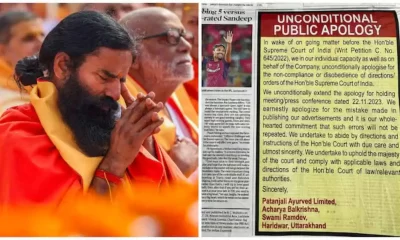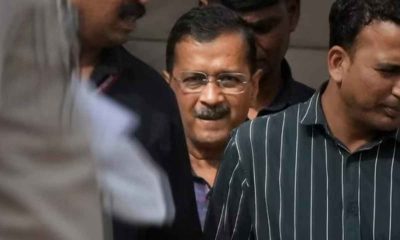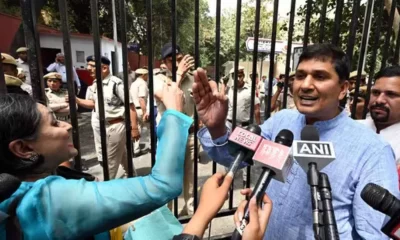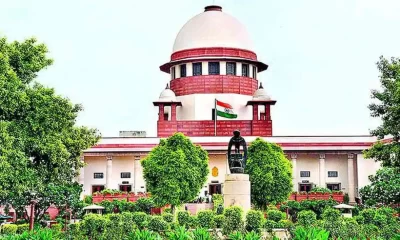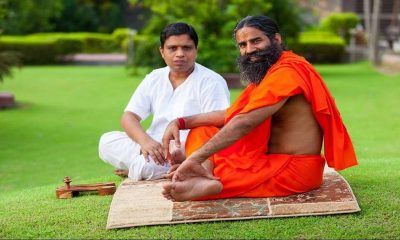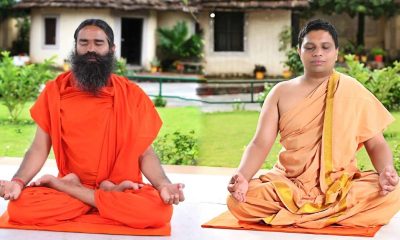India News
SC clarifies again: There is no right to die
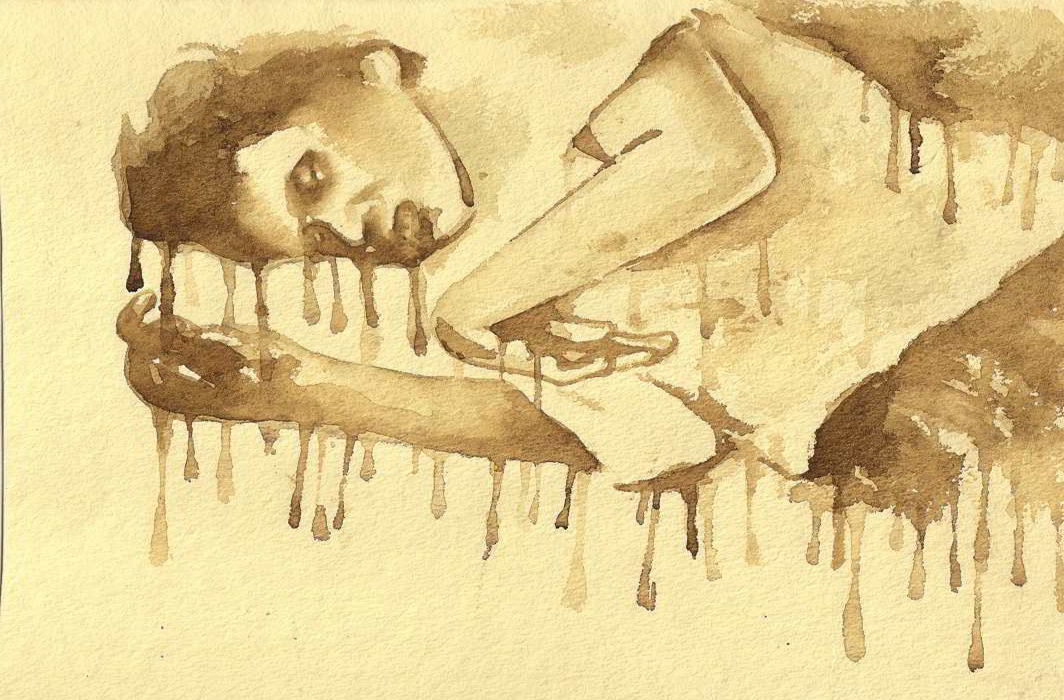
[vc_row][vc_column][vc_column_text]Top court directs that every district should have a medical board whose duty will also be to decide the validity of the will that the person who is in terminal illness may have made
The Supreme Court on Wednesday (October 11) re-clarified what has always been established by Indian judiciary that “there is no right to die”. The constitution bench of Chief Justice Dipak Misra and Justices A K Sikri, A M Khanwilkar, D Y Chandrachud and Ashok Bhushan also decided that every district should have a medical board whose duty will also be to decide the validity of the will (of a person on ventilator or in the last stages of a terminal disease) and that the board’s decision on this will be final. The board’s preliminary duty of course will be to ensure that there is enough reason to pull the plug on a dying person, if needs be.
The Chief Justice made it clear that once the medical board makes any decision, family members should not create any impediments.
In the last two days the bench has gone through several intricate and delicate issues and situations, weighing the pros and cons. On Wednesday the bench could not decide on the constitutionality of euthanasia as a right and said that there is no right to die.
However, the bench agreed that complications could arise in the event of the dying person having a will and is on life support. In that case should the plug be pulled, and if so, who will decide on this?
Justice Sikri said that there were two situations to be considered:
- The person had executed a will and is now in a situation when his senses are deemed dead. But, due to advancement of technology, there is a possibility that he can be treated and cured.
- His senses are dead and there is no cure for it.
Justice Chandrachud said: “Take for example AIDS. Now it is curable.”
The Chief Justice said: “You don’t have the right to die, but can euthanasia be given in certain cases? Also explain if the guidelines given in the Aruna Shanbagh case are enough or not.”
An intervenor came who favours passive euthanasia. He said it is the right of the state to ensure the right to life and right to die with dignity.
That was when the question arose: “What will be role of the medical board in determining validity of a will? If someone disputes the will, how will its validity be checked?” This was raised by Additional Solicitor General P S Narasimha.
EARLIER DELIBERATIONS
In the deliberations on the legality of a “living will” on Tuesday the court had asked whether courts should intervene if there is no legal guardian to decide if a person should continue on prolonged life support. When is such intervention justified and who will certify that a person’s condition will not improve to bring him or her back from a permanent vegetative state?
Senior counsel Prashant Bhushan, appearing for petitioner NGO Common Cause had said that a person suffering from terminal illness should be granted the decisional autonomy to state that he no longer wanted to be under continued treatment, especially in a country like India where medical facilities are woeful and often prolong a person’s suffering even if he is not clinically certified as dead. This autonomy should be treated as part of a person’s right to die with dignity, which a previous constitution bench held as being a part of the right to life under Article 21.
What are the safeguards for deciding on such a will, and who will certify that medical treatment was no longer working, the bench asked. Justice Sikri stressed that because the process is irreversible there have to be iron-clad safeguards.
Justice Chandrachud posed philosophical questions. He spoke of the chances of a ‘living will’ being misused in the case of elderly people. He said it was deeply troubling that the largest section of the population suffering ill treatment is the elderly, who “become a burden and are neglected”. In the case of a rich elderly person, the chance of misuse is real, he pointed out. He sought to know what was the “threshold of pain” at which life support could be withdrawn. “How proximate should be the point at which the doctors take the decision and likely point of death?” he asked.
On the benefits of a ‘living will’, the CJI said: “when a person is on ventilator, who will take the decision to remove the life support? Everybody is in confusion. If there is a will, it is morally sustainable. When a will is made, all are free, relatives are free, doctors don’t have any inhibition that anyone will accuse them of murder. They only have to take a conscious decision.”
He also pointed to the scope for misuse of such a will and sought to know “how to prove that document”. “A healthy man can also execute a document that he is admitted to hospital and was administered treatment, but there was no use and he didn’t want to remain on ventilator,” he said. The CJI also wondered “what is the safeguard to ensure that it is really his will and… who will certify that his condition is bad?”
Contrary to what some people think, the Constitution bench is not concerned with either euthanasia or assisted suicide in this case. It is considering a more limited contention that Common Cause has made in its petition, which is that the court grant an individual the right to execute a living will.
A living will, legal in several countries, allows a competent adult to execute an Advance Directive as to whether he or she should or should not be given medical treatment when he or she is terminally ill and not in a position to take a medical decision.
This is the right of a person in sound health to refuse in advance to be medically treated or be kept on life support if he or she becomes terminally ill. If the court recognizes the right of an individual to execute a living will, then it can go on to decide whether to grant individuals the right to assisted suicide.
Common Cause has, however, qualified its contention by saying that the strictest safeguards should govern the right to execute a living will. An expert committee must ensure that a person is not being compelled to resort to this step either out of diminished mental capacity or any other kind of pressure, especially from family members who could be motivated by material considerations.
In the absence of a law governing euthanasia, citizens must rely on two judgements for guidance on the issue. One is the Constitution bench’s decision in the Gian Kaur case of 1996 to hold that only natural death in the course of time is permitted under the law.
The other is the Supreme Court’s decision in the Aruna Shanbaug case of 2011. In that case, the court liberated those in a permanent vegetative state by laying down detailed, mandatory guidelines regarding when it would be legal for doctors and medical personnel to pull the plug.
Aruna Shanbaug had been in a permanent vegetative state for more than two decades when the court passed the judgement. While the court declined to intervene in her case, its general guidelines came into force.
The Law Commission of India, whose job it is to suggest law reform, has however opposed the grant of legal sanctity to living wills. In its 241st report, it said: “In a country where there is considerable illiteracy and lack of knowledge of developments in medicine and technology, there is scope for Advance Directives being based on wrong assumptions… as a matter of public policy in India, Advance Directives oral or written are controversial and can lead to mischief and should be made legally ineffective.”
The Law Commission welcomed the decision in Shanbaug’s case but stressed the need for a comprehensive legislative framework regulating passive euthanasia. The government submitted that the ruling in Shanbaug’s case, upholding the validity of passive euthanasia, was wrong. The government had stressed that it was for the legislature and not the Supreme Court to debate and decide. The government also submitted that it should have the right to sit in judgement over the opinion of the medical board that a person can no longer be revived with treatment.[/vc_column_text][/vc_column][/vc_row]
2024 Lok Sabha Elections
Brij Bhushan Sharan Singh’s son Karan gets BJP Lok Sabha ticket from Kaiserganj
Karan Singh Bhushan was on December 13, 1990. He competed at the national level in double trap shooting. He has a daughter and a son. Karan Singh Bhushan completed his Bachelor of Business Administration (BBA) and law from Dr Ram Manohar Lohia Avadh University.
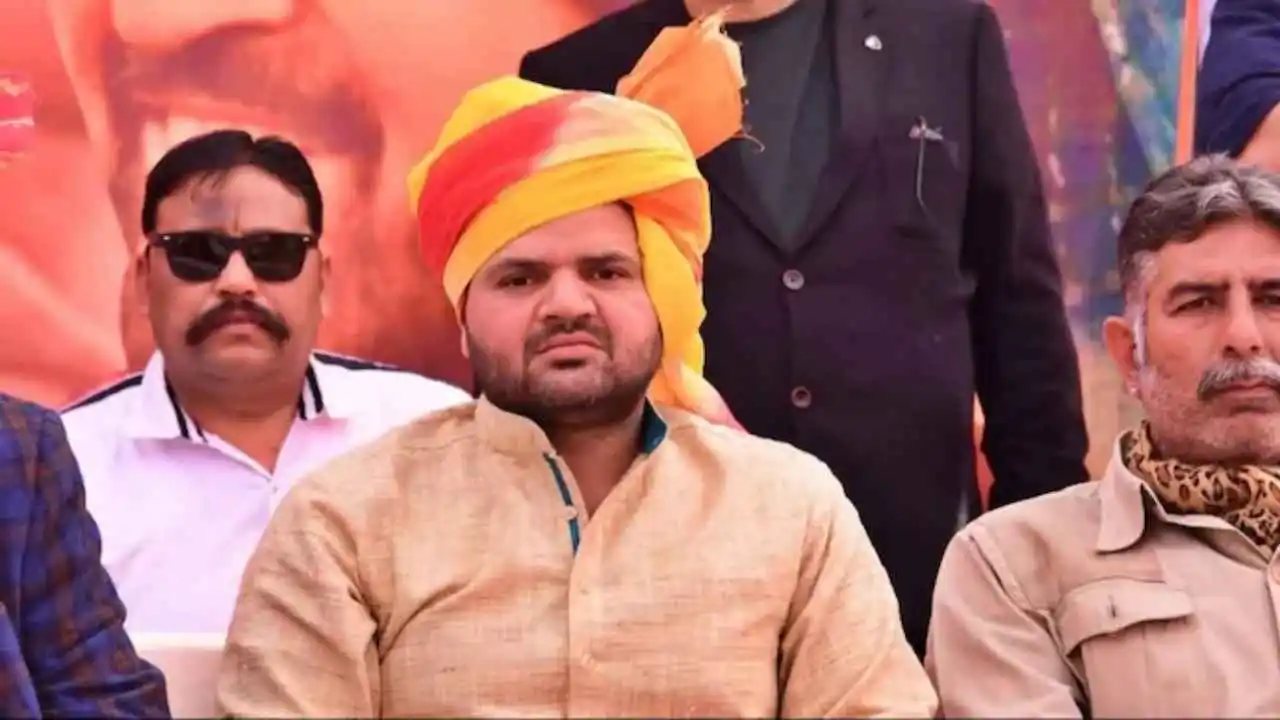
BJP on Thursday dropped sitting Kaiserganj MP Brij Bhushan Sharan Singh, who has been accused of sexual harassment by women wrestlers and gave a ticket to his son, Karan Bhushan Singh. Karan Bhushan, Brij Bhushan’s younger son, is the president of the Uttar Pradesh Wrestling Association. He is also the head of The Cooperative Bank in Nawabganj in Gonda district.
Karan Singh Bhushan was on December 13, 1990. He competed at the national level in double trap shooting. He has a daughter and a son. Karan Singh Bhushan completed his Bachelor of Business Administration (BBA) and law from Dr Ram Manohar Lohia Avadh University.
He has also holds a diploma in business management from Australia. Karan Bhushan Singh is presently the president of the Uttar Pradesh wrestling association. Earlier he was the senior vice president of the UP wrestling association. Elections will be take place in Kaiserganj in the 5th phase of Lok Sabha elections on May 20. Karan Bhushan Singh is likely to file his nomination from Kaiserganj on May 3.
There has been a lot of speculation and suspense on Brij Bhushan Sharan seat this time as the former Wrestling Federation of India (WFI) chief, who is also a 6-term MP, had been accused of sexual harassment by some of the India’s top wrestlers.
Many female wrestlers, including medallists, protested against the BJP leader and demanded his arrest over the charges of sexual harassment while he was serving the position of the WFI president. Wrestlers, including Sakshi Malik and Bajrang Punia, sat on a protest at the Jantar Mantar and demanded action against the Kaiseganj MP.
The Delhi Police later registered a case against Brij Bhushan Sharan Singh under Sections 354 (assault or criminal force to woman with intent to outrage her modesty), 354D (stalking), 354A (sexual harassment) and 506 (criminal intimidation) of the IPC, on June 15, 2023. But he was granted bail on July 20, 2023.
2024 Lok Sabha Elections
Rahul Gandhi criticises BJP, PM Modi for JD(S) alliance, seeking votes for a mass rapist
Rahul Gandhi was addressing an election rally in Karnataka’s Shivmogga where he said that PM Modi is seeking votes for a mass rapist. The Congress leader added that Narendra Modi, from a packed stage, supports that rapist and said: if the people of Karnataka vote for this rapist, it will help him.
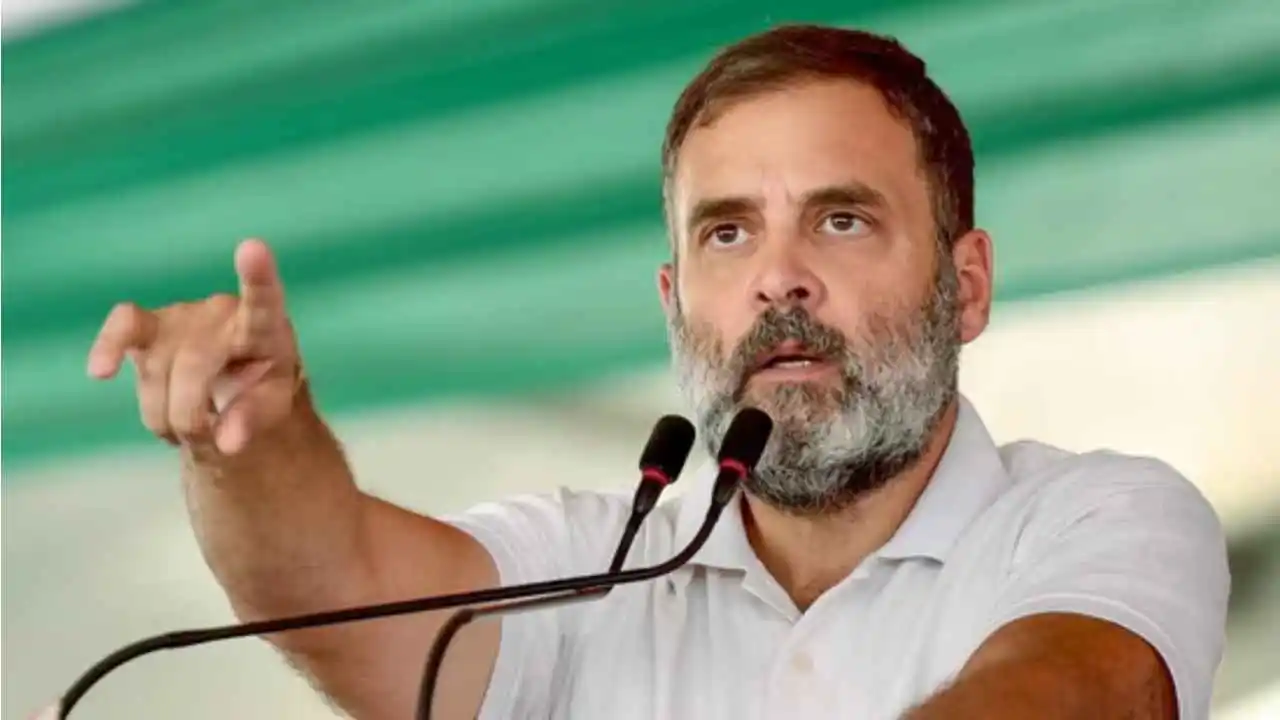
Congress leader Rahul Gandhi on Thursday said that the sex video case involving Prajwal Revanna, the member of Parliament from Karnataka’s Hassan, is not just a mere sex scandal but of mass rape. He also criticised the BJP and Prime Minister Narendra Modi for the JD(S) and seeking votes for a mass rapist.
Rahul Gandhi was addressing an election rally in Karnataka’s Shivmogga where he said that PM Modi is seeking votes for a mass rapist. Prajwal Revanna raped a number of women and made their sex videos. The Congress leader added that Narendra Modi, from a packed stage, supports that rapist and said: if the people of Karnataka vote for this rapist, it will help him. Gandhi accused PM Modi of helping Revanna (former PM HD Deve Gowda’s grandson) escape from India.
Gandhi said even when Prajwal Revanna raped a number of women, the prime minister did not stop him from going to Germany. He said Prime Minister Narendra Modi has all the machinery, yet he allowed the mass rapist to flee to Germany. He took a sarcastic dig at PM Modi and said this is Modi’s guarantee. The Congress leader asserted that whether it’s a corrupt leader or a mass rapist, the BJP will always protect him.
Prajwal Revanna, the sitting MP from Hassan and the grandson of former PM HD Deve Gowda, has been accused of being in purported sex tapes. A number of pen drives allegedly contain his sexual assault videos which were circulated in Hassan, the Lok Sabha constituency from where he is the BJP-JD (S) candidate.
Most of the sex videos were recorded by Prajwal Revanna in his office and house. Initially, the Gowda family and the BJP termed the tapes as being doctored to tarnish the image of the family in elections but later, HD Kumaraswamy distanced himself from the tapes and said the police is investigating the matter.
India News
SIT issues lookout notice for Prajwal Revanna in sex video case
A police officer, who is part of the SIT, confirmed to the media that a lookout circular has been issued at all the immigration points to detain Prajwal Revanna, said to be in Germany, as soon as he enters the country.
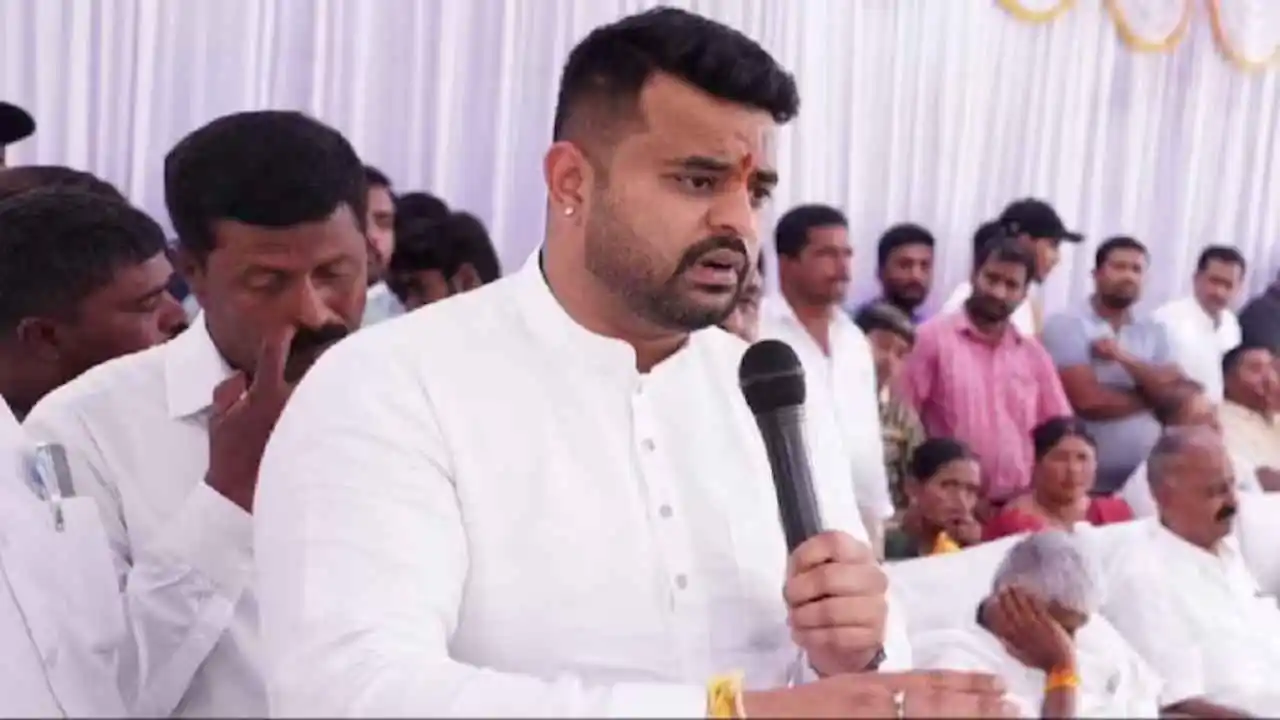
The Special Investigation Team (SIT), probing the sex tapes case involving JD(S) Lok Sabha candidate Prajwal Revanna, on Thursday issued a lookout notice against him. The notice was issued at all immigration points all over the world. The development comes as Revanna allegedly fled to Frankfurt, Germany on April 26, as a huge cache of explicit videos and photographs showing him indulging in the sexual abuse of several women went viral on social media platforms.
Prajwal Revanna is the grandson of former prime minister and JD(S) patriarch HD Deve Gowda and son of former minister HD Revanna, is seeking re-election from Hassan on the JD(S) ticket. The JD(S) MP faces sexual assault charges and has sought 7 days to appear before the Special Investigation Team probing the matter.
Prajwal Revanna and his father, DD Revanna have been issued notices to appear before the SIT for questioning. The Hassan MP informed the SIT team that he is currently outside Bengaluru. A case has been registered against both HD Revanna and his son Prajwal Revanna at Holenarasipura based on a complaint lodged by their former cook and relative for sexually harassing her.
She alleged that Prajwal Revanna made video calls to her daughter and spoke in an objectionable manner, which forced her to block his phone number. The FIR was referred to the SIT, led by BK Singh, Additional Director-General of Police, Criminal Investigation Department, formed to probe the alleged sex scandal involving Prajwal Revanna, after many explicit videos were circulated on social media.
The National Commission for Women (NCW) has demanded a comprehensive report within 3 days from the Karnataka Police regarding allegations of sexual misconduct against Prajwal Revanna. The NCW expressed grave concern over the circulation of a number of obscene videos on social media, which showed Prajwal Revanna sexually assaulting number of women.
-
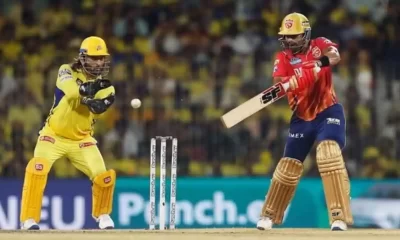
 Cricket news14 hours ago
Cricket news14 hours agoIPL 2024: Jonny Bairstow, Rilee Rossouw guide Punjab Kings to 7-wicket victory over Chennai Super Kings
-
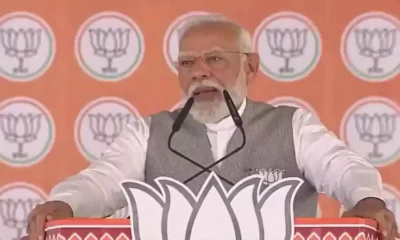
 2024 Lok Sabha Elections12 hours ago
2024 Lok Sabha Elections12 hours agoPM Modi takes a dig at Rahul Gandhi, says Pakistan wants him as Prime Minister
-
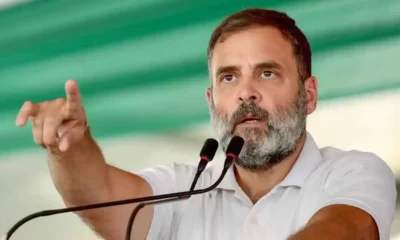
 2024 Lok Sabha Elections8 hours ago
2024 Lok Sabha Elections8 hours agoRahul Gandhi criticises BJP, PM Modi for JD(S) alliance, seeking votes for a mass rapist
-
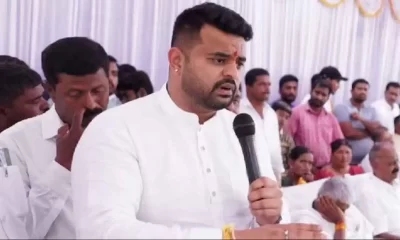
 India News11 hours ago
India News11 hours agoSIT issues lookout notice for Prajwal Revanna in sex video case
-
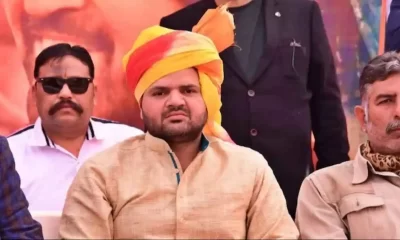
 2024 Lok Sabha Elections7 hours ago
2024 Lok Sabha Elections7 hours agoBrij Bhushan Sharan Singh’s son Karan gets BJP Lok Sabha ticket from Kaiserganj
-
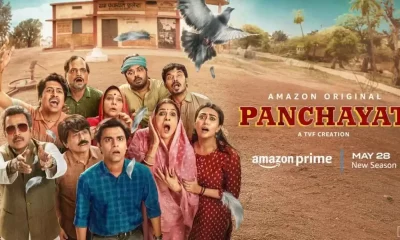
 Entertainment6 hours ago
Entertainment6 hours agoPanchayat Season 3 to premiere on Amazon Prime video on May 28, 2024
-
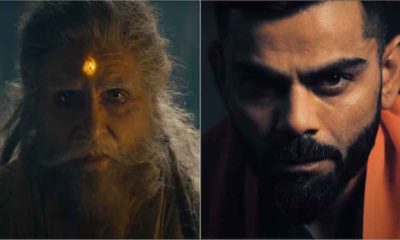
 Cricket news13 hours ago
Cricket news13 hours agoBollywood star Amitabh Bachchan motivates Indian cricket team for ICC Men’s T20 World Cup 2024, video goes viral

